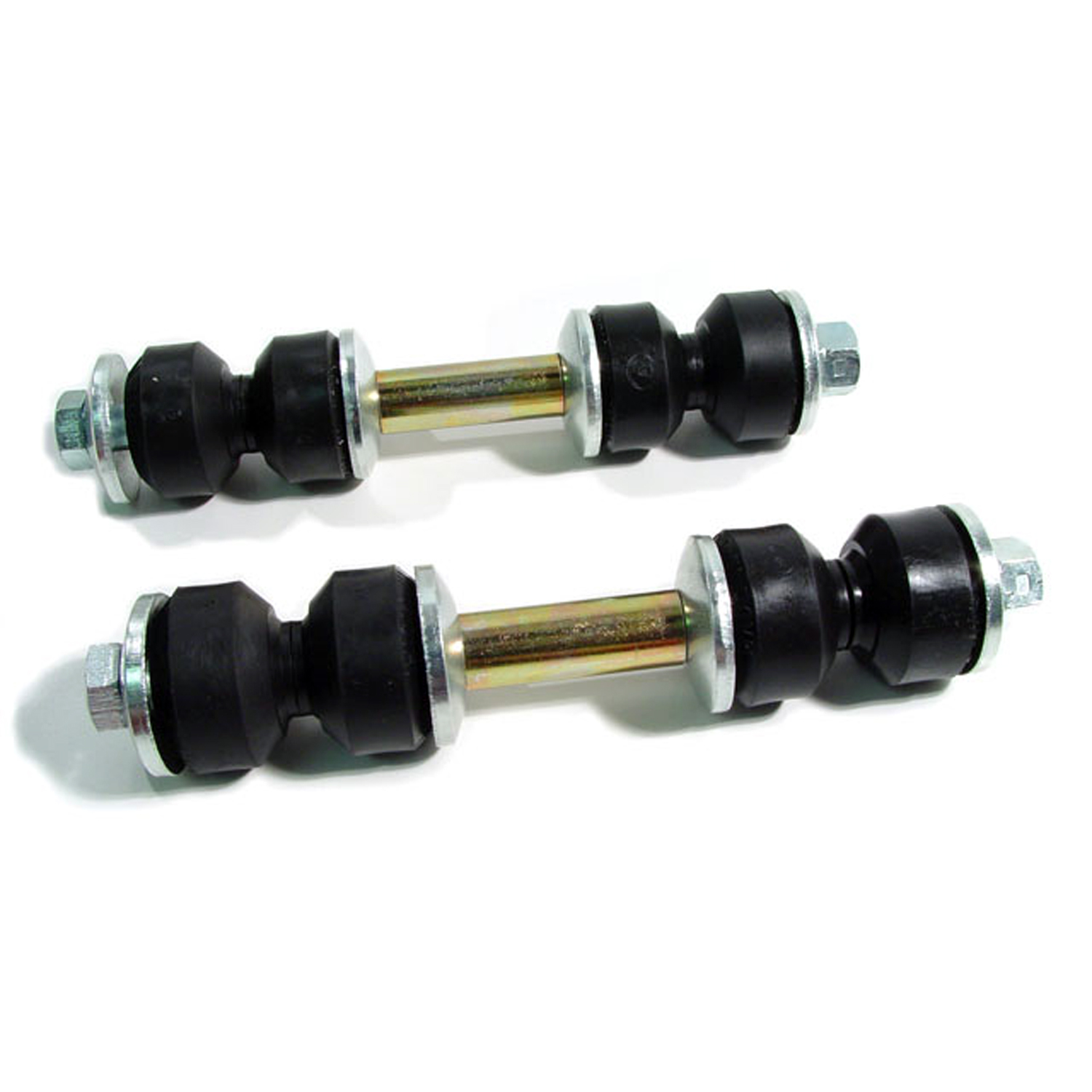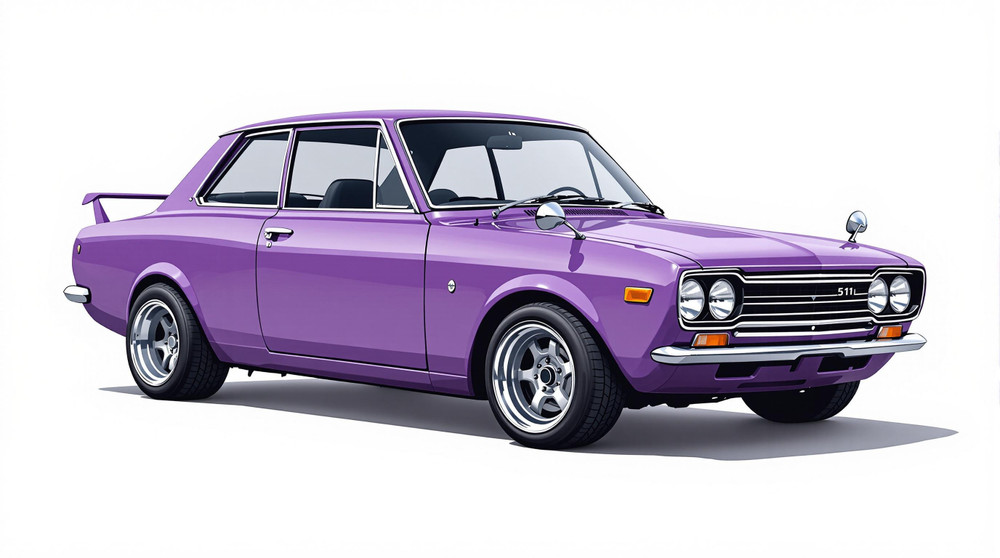Image of 1972 Nissan 510, Note: These illustrations use artistic license and may differ from actual historical models.
Performance Metrics
Fundamental Metrics
Emotional Appeal
MMP Rating
| Engine Specifications | |
|---|---|
| Engine Options: | L16 I4, L18 I4, L20B I4 |
| Displacement Range: | 1.6L, 1.8L, 2.0L |
| Horsepower Range: | 96-110 hp |
| Torque: | 100-120 lb-ft |
| Compression Ratio: | 8.5:1, 9.0:1 |
| Ignition System: | Conventional distributor with points |
| Cooling System: | Liquid-cooled |
| Performance Specifications | |
| 0-60 Time: | 12 seconds |
| 1/4 Mile Time: | 18 seconds |
| Top Speed: | 100 mph |
| Transmission and Drive | |
| Drive Type: | Rear-wheel drive |
| Transmission Type: | 4-speed manual, 3-speed automatic |
| Fuel and Efficiency | |
| Fuel System Type: | Carburetor |
| MPG: | 20-25 mpg |
| Dimensions and Brakes | |
| Brakes: | Front disc, rear drum |
| Wheelbase: | 95.3 inches |
| Weight: | 2,000 lbs |
Note: Specifications for classic cars are given to the best of our ability, considering the limited and variant data available.
Unveiling the Underdog: The 1972 Nissan 510
The 1972 Nissan 510 may not have the immediate name recognition of some of its contemporaries, but for those in the know, it's a vehicle that commands respect. Born from the stables of Nissan, then known as Datsun in many markets, this modest car emerged as a formidable player in the automotive world. It was a time when Japanese automakers were beginning to make their mark internationally, and the 510 played a pivotal role in that movement. Notably, it earned the nickname "Poor Man's BMW" for its impressive engineering and performance at an accessible price point.
Design and Innovation
With its unassuming yet confident stance, the exterior of the 1972 Nissan 510 was a blend of simplicity and function. The boxy silhouette was punctuated by clean lines and an angular front fascia that exuded a certain charm characteristic of early '70s design. Inside, occupants were greeted with a no-frills interior that focused on practicality. Despite its budget-friendly nature, the quality of materials used was commendable for its class. Technologically, it featured advancements like independent rear suspension—a rarity among vehicles in its price bracket at the time. Color options ranged from vibrant to subdued, with hues such as Sunshine Yellow and New Blue being popular picks among enthusiasts.
The 510 was available in several body styles including two-door sedan, four-door sedan, and the highly sought-after two-door station wagon. But it was the two-door sedan that became emblematic of the model's racing pedigree and is often most associated with the 510 legacy.
Historical Significance
The Nissan 510's impact on automotive design was subtle yet significant. It demonstrated that affordability need not come at the expense of performance and handling. The car's engineering prowess allowed it to punch well above its weight class, challenging European sports sedans on their own turf. This democratization of performance set a precedent that would influence automotive design philosophies for decades to come.
Performance and Handling
Underneath its humble exterior, the 1972 Nissan 510 housed an L-series I4 engine capable of delivering spirited performance with a top speed that could reach around 100 mph. Its acceleration from 0-60 mph took roughly 12 seconds—a respectable figure for its era and class. The driving experience was characterized by responsive handling and a firm ride that communicated the road's texture without discomfort. Drivers often praised the car for its balance and poise on twisty roads, attributing these characteristics to its well-tuned suspension and lightweight chassis.
Ownership Experience
The Nissan 510 found favor among a diverse group of owners—from daily commuters appreciating its reliability to racing enthusiasts drawn to its potential on the track. Maintenance was straightforward, making it an ideal choice for those who preferred to handle repairs themselves. Its reputation for durability only added to its appeal as both a practical choice and a weekend warrior.
Fun Facts
This unassuming hero has had its share of limelight with rare editions like the BRE (Brock Racing Enterprises) 510 which dominated SCCA racing. Celebrity ownerships have included notable names like actor Paul Newman who raced a 510 in SCCA events. While not known for breaking speed records, it broke expectations by outperforming many competitors in its segment.
Collector's Information
Today, collectors hold the 1972 Nissan 510 in high esteem with values varying widely based on condition, originality, and history. An estimated total production number well into six figures means that while not exceedingly rare, finding one in pristine condition can be challenging. Price trends have generally seen an appreciation over time with well-maintained models fetching anywhere from $10,000 to over $30,000 depending on various factors.
Conclusion
The 1972 Nissan 510 stands as a testament to innovation and accessibility in automotive history. It may have started as an underdog but carved out a legacy that continues to resonate with car enthusiasts around the world. Whether you're behind the wheel or admiring from afar, this classic Nissan remains a beloved chapter in the story of Japanese motoring excellence.
1972 Nissan 510 Catalog of Parts
 1972 Nissan 510 Front Stabilizer End Repair Kit-BNK 22Front Stabilizer End Repair Kit. 22-piece set for two stabilizer bars. Contains all rubber bushings, washers, bolts and nuts, enough for one front end. Set
1972 Nissan 510 Front Stabilizer End Repair Kit-BNK 22Front Stabilizer End Repair Kit. 22-piece set for two stabilizer bars. Contains all rubber bushings, washers, bolts and nuts, enough for one front end. SetWhy Choose Metro?
For over 100 years, Metro Moulded Parts has been the pinnacle of quality in classic car restoration parts. Our commitment to precision and authenticity in every component ensures a perfect fit and an OEM-level appearance.
- Expert Craftsmanship & Quality: Each part is a testament to our dedication to reliability and perfection, crafted from original designs and thoroughly tested.
- Advanced Technology: We use cutting-edge techniques to create flawless, long-lasting parts that surpass others in performance.
- SuperSoft Sponge – The Ultimate Door Seal: Not only are our door seals 30% softer than competitors', but they're also guaranteed to never leak. They effectively reduce wind and road noise, enhancing your classic car's comfort and driving experience.
- Proudly American: Our parts are a product of American craftsmanship, made in the USA with a spirit of excellence and heritage.
- Unrivaled Warranty: We back our products with a 30-year industry-leading warranty, a testament to our confidence in their quality.
Join us in preserving the legacy of classic cars with parts that are crafted for perfection, not just made.

